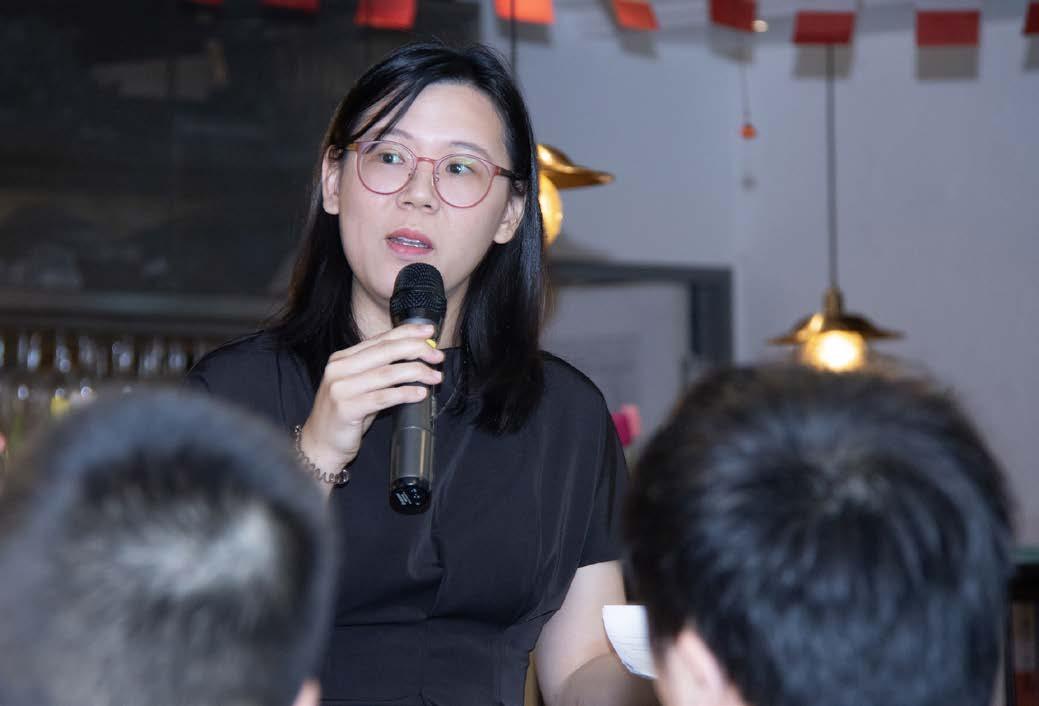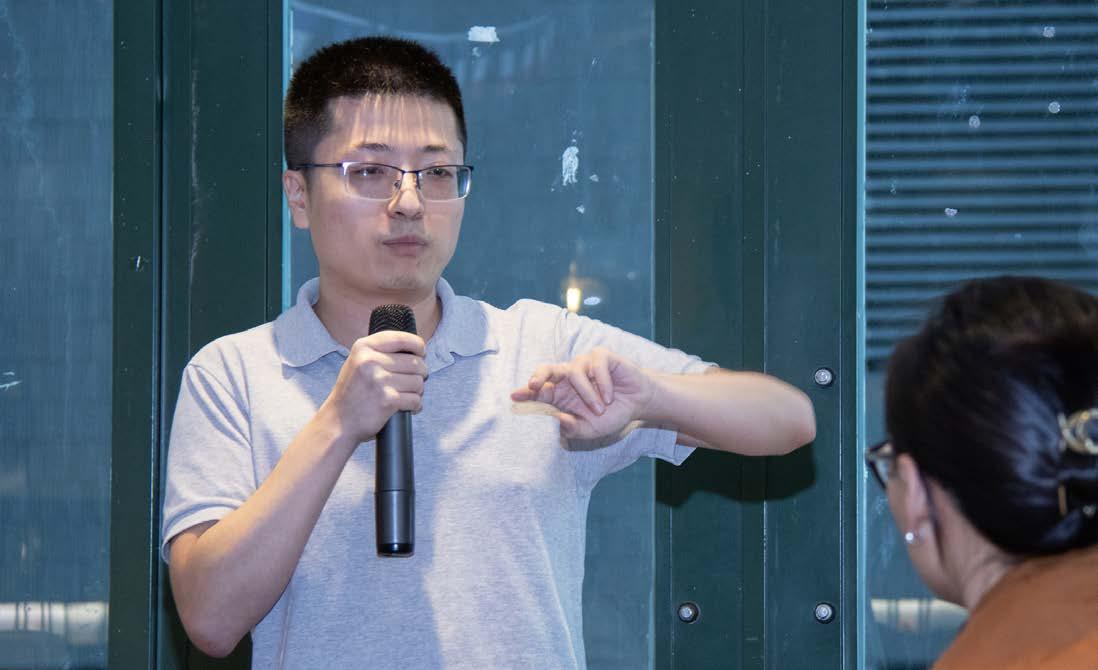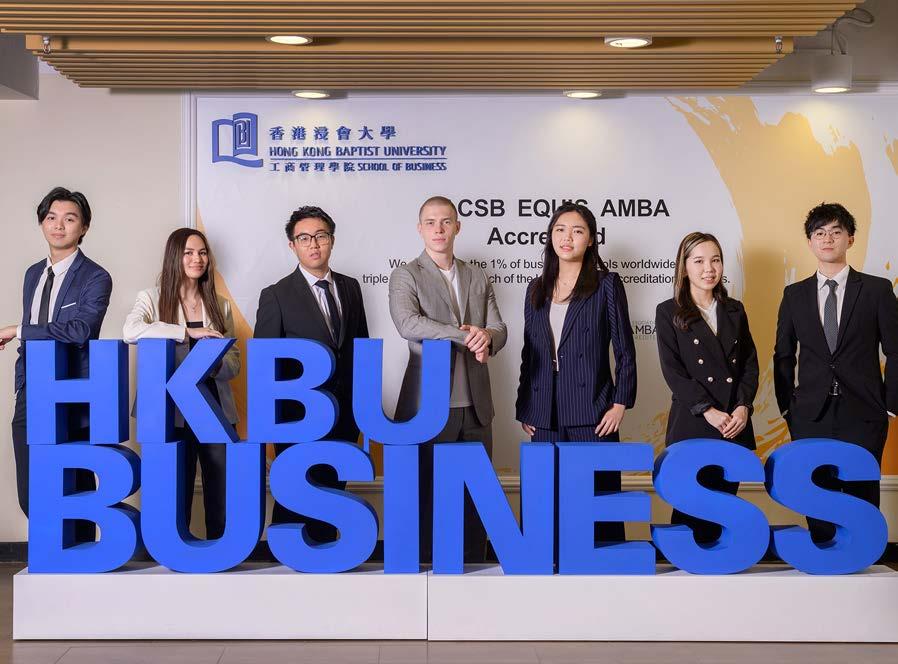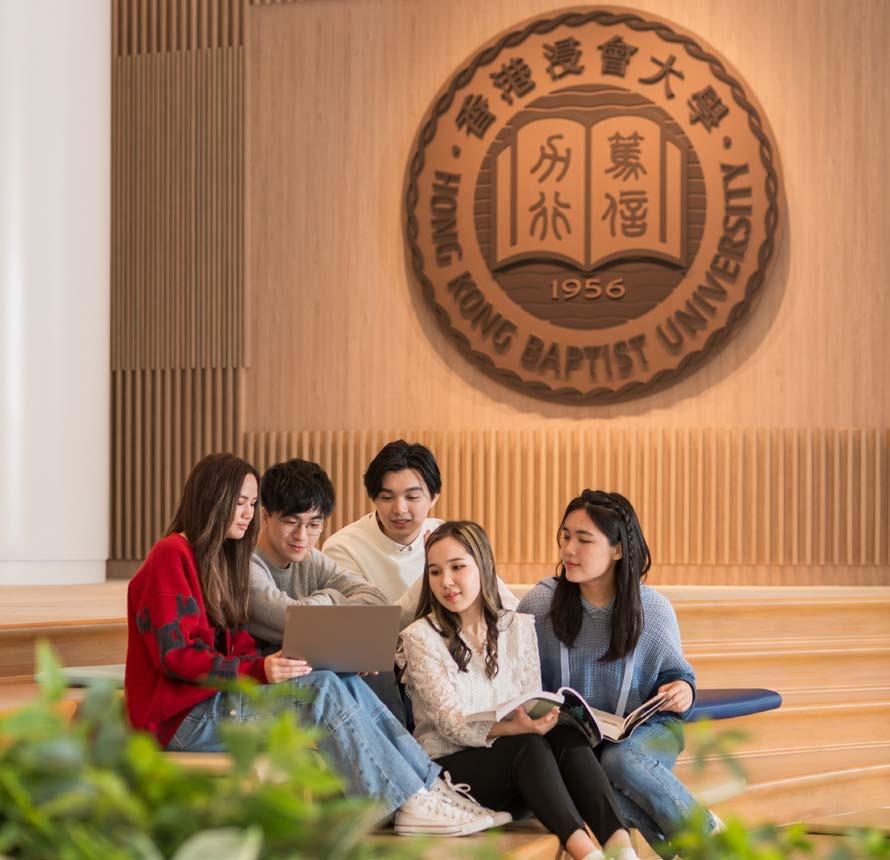








Lin, Z., Song, B. Y., & Tian, Z. (2024). Reputable inside directors and internal control effectiveness. European Accounting Review, 33(4), 1197-1226. https://doi.org/10.1080/09638180.2022.2156573










Lin, Z., Song, B. Y., & Tian, Z. (2024). Reputable inside directors and internal control effectiveness. European Accounting Review, 33(4), 1197-1226. https://doi.org/10.1080/09638180.2022.2156573
As famed investor Warren BUFFETT once said, “It takes 20 years to build a reputation and five minutes to ruin it.” Indeed, the importance of a good reputation is evident in the number of highprofile executives appointed to corporate boards, such as Sheryl SANDBERG, who was both a director and Chief Operating Officer (COO) of Facebook while also serving on the board of The Walt Disney Company, or Ruth PORAT, the CFO of Alphabet (Google) who sits on the board of Blackstone, one of the world’s largest alternative asset managers. But does appointing reputable inside directors (“RIDs”)—defined as non-CEO inside directors holding at least one outside directorship–actually lead to stronger internal controls and better corporate governance? A new study suggests that it just might—especially for firms in need of tighter oversight.
Boards of directors are pivotal in corporate governance, overseeing management and steering company strategy. While independent, outside directors are valued for their impartiality, concerns about independence and expertise arise when they are handpicked by CEOs—especially in the wake of accounting scandals like Enron and WorldCom. This brings RIDs into focus. With external board exposure, deep operational knowledge, and incentives to maintain their professional standing—if only to secure more high-paying and prestigious board appointments—they should be uniquely positioned to enhance governance.

Analysing data from 1,439 S&P 500 companies that reported internal control weaknesses (ICWs) under the Sarbanes—Oxley Act between 2004 and 2012, the findings are clear: appointing reputable inside directors (RIDs) does enhance the effectiveness of internal controls. RIDs support board committee oversight by providing outside directors with comprehensive information and mitigating CEO entrenchment. Holding significant operational roles—such as president, CFO, or COO—RIDs’ daily responsibilities are closely tied to control and monitoring, allowing them to play a more meaningful role in board


oversight. Finally, CEOs in firms with RIDs face increased monitoring and replacement pressures, incentivising them to strengthen internal controls.
Findings suggest that firms with RIDs are less likely to report or face potential ICWs, particularly when strong monitoring is needed—such as in firms with complex operations or operating in high-risk environments— or when misreporting carries steep regulatory or reputational costs. The impact of RIDs is more pronounced when they have significant reputational concerns, as they seek to protect their public image,

and when they are not closely aligned with the CEO. Notably, RIDs who are CFOs are more likely to flag ICWs, while the mere act of bringing in new RIDs also increases the likelihood of fixing control issues.
Since RIDs play a clear role in strengthening corporate governance and enhancing financial integrity, regulators may want to take note. As for aspiring directors, they’d do well to remember Stephen KING’s words: “A good reputation must be earned—it can never be bought.”

Prof. Byron Y SONG Associate Professor Department of Accountancy, Economics and Finance


Ho, C. K. Y., Kuan, K., Liang, S., & Ke, W. (2024). Effects of temporal features and product image zooming in online time scarcity deals: A construal fit account. Information & Management, 61(1), 104019. https://doi.org/10.1016/j.im.2024.104019
Who doesn’t love the thrill of a discount—the rush of watching the price drop, seconds ticking away on the screen, knowing that a dream vacation or the latest gadget could be yours with a single click? From Amazon’s Lightning Deals to Kickstarter’s early-backer incentives, e-commerce platforms use time-limited offers to drive sales by tapping into urgency and scarcity. Sadly, the excitement of a purchase often fades when we don’t get what we want right now—something that’s common in offline shopping too, thanks to long delivery times and other delays. But does the same dynamic apply to online deals? A recent study says yes. And, interestingly, it suggests sellers can use a simple tool—image zooming—to keep excitement high and consumers on.
As online shoppers know, many deals feature countdown timers next to product descriptions, urging quick action. But lead time—the delay between purchase and delivery—can dull that sense of urgency. Whether it’s the shipping time for physical goods, advance bookings for services, or redemption windows for perishable items, lead times can stretch from days to months. Since consumers prefer shorter waits, minimising lead time is key to keeping a deal’s appeal. But how can this be done when delays are often unavoidable?
Building on insights from Construal Level Theory (CLT)— which explains how psychological distance affects decision-making—researchers looked at how adjusting product image zoom levels could influence consumer

perception of online deals. According to CLT, both time and proximity shape how we evaluate offers: zooming in should work best for short deal times, while zooming out would support deals with longer lead times. By matching image zoom with deal timing, sellers can make products feel more appealing and, ultimately, easier to sell.
To test this, a number of university students participated in a series of experiments based on an initial set-up in which they viewed online deals for items like yogurt, sandwiches, ice cream, and sushi. Participants were randomly shown either a zoomed-in or zoomed-out


version of the product images with a brief description, displayed for 30 seconds. The zoom-in images were twice as close up as the zoom-out ones, providing a more detailed look at the product. The subsequent experiments were variations of this initial setup to further explore how zoom levels influenced buying behaviour.
The results? Tweaking product images can make or break an online deal by shaping how “close” or “distant” it feels. Zooming out eases the frustration of long wait times, triggering a “feeling right” effect that makes deals more appealing, while zooming in reinforces

urgency when the product will arrive soon. Instead of keeping images static, sellers should adjust zoom levels based on both deal timing and product availability. The key is psychological fit: Get it right, and conversions go up. Overdo it, and zooming can backfire— making the product look distorted or unrealistic.
Meanwhile, as always, whether online or offline, buyers should beware and remember to keep the zoom where it belongs—firmly on their wallet!

Prof. Candy K Y HO Associate Professor Department of Management, Marketing and Information Systems


The HKBU School of Business recently hosted a dynamic research symposium, “Leadership Research Beyond Boundaries” pushing the frontiers of leadership studies on 20th May 2025. The event, organised by the Centre for Human Resource Strategy and Development (CHRSD), brought together distinguished scholars to explore cutting-edge research and also offered actionable insights into real-world leadership challenges.
The symposium delved into the intricate dynamics of leadership, from the initial establishment of authority to the subtle influences within complex organisational networks. Prof. Wu LIU (The Hong Kong Polytechnic University) examined how new leaders gain status over time, highlighting the distinct trajectories of status attainment based on approaches emphasising dominance, competence, or virtue. His longitudinal study revealed that leaders embracing virtue often gained more respect over time andexperienced a rise in status, while those relying on dominance may see their influence decline.
Prof. Jia (Jasmine) HU (Tsinghua University) offered a fresh perspective on leadership and gender inclusion, drawing from her latest book and an empirical study on CEO humility. Her findings reveal that CEOs who demonstrate humility—by being open to new ideas, recognising others’ strengths, and acknowledging their own limitations—are significantly more likely to promote women into top management roles. This effect is especially pronounced when the CEO is female or operates in a cultural context with lower power distance. This work challenges conventional leadership models and underscores the value of inclusive, character-driven leadership in shaping more equitable organisations.
Last but not least, Prof. Erica XU, Associate Professor, Department of Management, Marketing and Information Systems, and Prof. Xu HUANG, Director of the CHRSD and Associate Dean (Research & Impact), both from the School of Business, Hong Kong Baptist University, presented two complementary studies examining how leadership influences are shaped by social hierarchy and network dynamics within organisations. The first study distinguished between leader-conferred and peer-conferred status within teams, revealing that team performance improves when both leaders and members agree on who holds high status. The second study focused on charismatic leadership, showing that such leaders often occupy central positions in organisational networks, which can enhance team performance—though this effect weakens in politically charged team environments.
The symposium fostered a vibrant exchange of ideas, bridging academic theory with real-world application. Attendees left with fresh perspectives and actionable strategies for cultivating effective leadership in today’s dynamic and diverse workplaces.

The HKBU School of Business hosted its latest “Research Happy Hour” on 21st May 2025, continuing to provide a relaxed and collegial space for faculty to connect, share ideas, and build interdisciplinary ties. The event serves as a valuable platform for fostering informal academic exchange and strengthening the research community within the School.
Prof. Amanda AW YONG from the Department of Accountancy, Economics, and Finance (AEF) illuminated the rapidly evolving world of Decentralised Finance (DeFi). She introduced DeFi as a fast-evolving alternative to traditional financial systems, driven by transparency and powered by smart contracts. While highlighting DeFi's potential to democratise finance, Prof. YONG also delved into the inherent risks, from vanishing platforms to the speculative frenzy of over-collateralised borrowing. She discussed the accounting challenges of valuation and legitimacy, along with the role of off-chain governance tools like Snapshot, which allow communities to deliberate and refine proposals before they are implemented on-chain.

Shifting gears, Prof. Liang ZHAO from the Department of Management, Marketing and Information Systems (MMIS) explored the power of online platforms and the rise of large language models (LLMs) in specialized domains. Using Alibaba Express as a case study, he demonstrated how a seemingly simple policy change can ripple through the ecosystem, impacting vendor costs, consumer satisfaction, and ultimately, platform governance. Prof. ZHAO then unveiled an innovative project: a COVID-specific legal language model, meticulously crafted with legal experts to navigate the complexities of pandemic-related law. This innovative tool promises to empower legal professionals, particularly smaller firms, by offering AI-driven efficiency tempered by expert oversight.


The evening was further enriched by the presence of guest discussants Prof. Janja BRENDEL from The Chinese University of Hong Kong and Prof. Zhiwei SU from Lingnan University. Their contributions sparked lively debates and fostered a dynamic exchange of ideas.



Dr. Chaoqun ZHAN
Research Assistant Professor Department of Accountancy, Economics and Finance
FDI Inflows and Export Quality: Domestic Competition and Within-Firm Adjustment

Journal of Development Economics
https://doi.org/10.1016/j.jdeveco.2024.103293
Prof. Jason K W LEE
Assistant Professor Department of Management, Marketing and Information Systems
Toward an Improved Causal Test of Network Effects: Does Alliance Network Position Enhance Firm Innovation?
Strategic Management Journal
https://doi.org/10.1002/smj.3679
Date
Speaker
Topic
Centre for Business Analytics and the Digital Economy
12 September 2025
16:00-17:30 Zoom
Co-hosted with CEIBS, NTU, NUS, NYUShanghai, Sinica, and SMU
Prof. Daniel WALDENSTRÖM
IFN Stockholm (Research Institute of Industrial Economics)
Richer and More Equal: A New History of Wealth in the West

The Research Espresso, a bimonthly e-publication covering everything you need to know about the latest research developments at the HKBU School of Business, focuses on four key areas: Research Insights (the main research topic of the month), Research Excellence (recognition of faculty members’ research achievements), News (research-related updates), and Seminars (sharing research skills and knowledge).
The idea is to provide business practitioners with the most recent research findings from the School‘s faculty. We want to build links between research and practice and to ensure that the School's research has business and societal impact.
Enjoy reading, and your feedback and input are always welcome!



